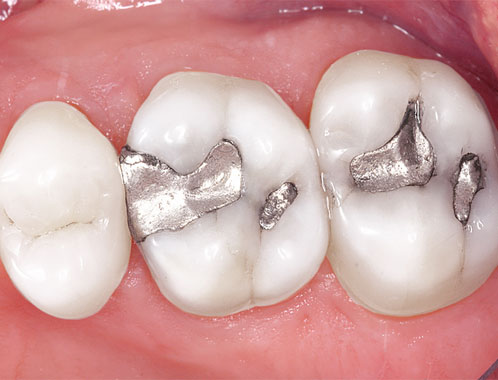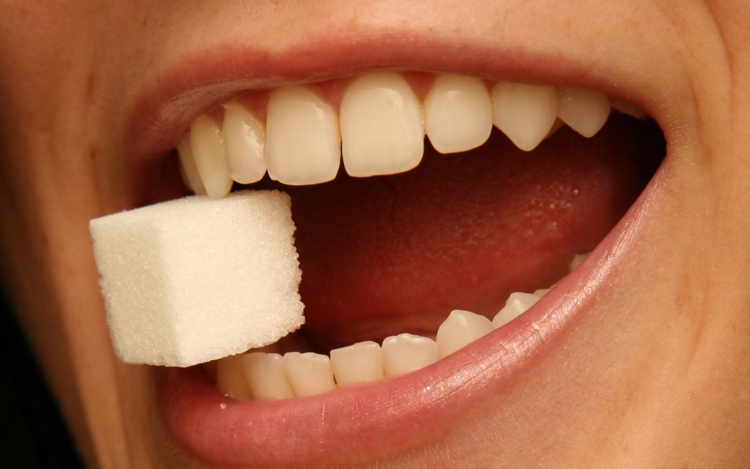As you probably know, there’s nothing we like more than taking a whole bunch of long-standing dental health myths and busting them wide open. The reason being that there are so many misleading untruths and bad habits out there which have the very real potential to steer you down the wrong path if you read too much into them. It’s one thing to flout common sense, but it’s something else entirely to do what you think is right, only to in fact be doing yourself and your teeth a great disservice.
So once again, we thought we’d throw a few new myths and untruths your way, while at the same time revisiting some of the most important examples you may not have come across. Armed with the most effective electric toothbrush and the following facts, you might just find yourself well on the way to better dental health care, every day.
Myth 1: Sugar is the main cause of tooth decay
First of all, it’s highly likely that from the very youngest age you had it drilled into your head that sugar represents public enemy number one for your teeth. Or more specifically, sugar is exactly the kind of thing you should stay away from in order to prevent tooth decay. In reality however, this is not specifically the case at all. Instead, sugar is simply the catalyst that gives bugs and bacteria the fuel they need to get to work on your teeth…in a bad way. Contrary to popular belief, these bugs actually form and multiply as carbohydrates are digested – including those found in grains, fruits, vegetables and other healthy foods. Or in other words, sugar alone cannot be blamed for causing harm to your teeth.
“This is a myth in a sense because sugar, while being ‘the gasoline in the tank’ is not the cause of tooth decay. It’s actually acids from bacteria that have gone to the dark side,” said Dr. Gerry Curatola, founder of Rejuvenation Dentistry in New York City in a recent interview with Fox News.
“We talk about good bugs and bad bugs; bad bugs are actually an unhealthy expression of natural bacteria in the mouth.”
Just don’t take this as a green light to start eating as much sugar as you like without a second thought – it still isn’t good for you in high doses!
Myth 2: Teeth whitening will damage your enamel
In this instance, the truth lies in common sense and moderation. The simple fact of the matter is that it cannot be comprehensively stated outright that teeth whitening is either good or bad for your teeth. This is because when you purchase standard teeth whitening products over the counter, they are usually made with hydrogen peroxide or a similar oxidizing agent. These agents whiten the surface of the enamel by removing stains and are usually supplied in the form of pastes, trays, strips and so on. Given the fact that they are available directly to the public, they generally contain incredibly low quantities of these ingredients which cause no direct threat to health. But at the same time, it is certainly possible to damage your teeth by getting carried away with how much you use them or whether or not you use them in accordance with the instructions. It’s a little like most over the counter medicines – use them in accordance with the instructions and you have nothing to worry about, but get carried away or make things up as you go along and you could be in for a world of trouble.

Myth 3: Silver fillings don’t need to be replaced
There are millions of people walking around right now with one or more silver-coloured fillings – most of whom are entirely unsure as to whether or not they should be replaced. In so many instances, you will find that you get a different answer from each person you ask – it is a subject of much confusion. In terms of the actual facts however, the truth is a little on the disconcerting side. As far as experts are concerned, the fact that these dated fillings in many instances contain a relatively high concentration of mercury represents a clear and urgent need to get them replaced with safer fillings.
One of the most hotly debated issues among dentists these days is whether or not old, silver amalgam fillings in the mouths of so many Americans are safe.
“A lot of patients are not even informed that silver-colored fillings are actually 52 percent mercury,” said Curatola.
“There’s also research – and it’s proven that mercury leeches out over time from these silver fillings – more if you drink hot liquids and chew things. My opinion is that I don’t think any amount of mercury is good, and especially if [these fillings are] breaking down, they should be replaced.”
Myth 4: Mouthwash with alcohol is good to use
The debate as to whether or not mouthwash should contain alcohol has been raging for more than 40 years. Just as some firmly believe that mouthwash made with alcohol has the potential to do more harm than good, others insist that it is one of the only ways of giving the mouth a truly intensive clean. Nevertheless, more dentists and experts than ever before seem to be siding with the former of the two arguments, stating that mouthwash should not contain alcohol for the simple reason that it does not need to. Not only this, but alcohol can excessively dehydrate the mouth and upset its careful balance. The best advice therefore is to seek the very best mouthwash recommended by dentists for you personally.
Myth 5: Wisdom teeth serve no purpose
Last but not least, it is often stated that wisdom teeth serve absolutely no purpose as they are simply an evolutionary throwback that we no longer need. Which is precisely why so many people have their wisdom teeth taken out at the first sign of their appearance, rather than taking the risk of overcrowding of the mouth further down the line. However, a growing number of experts believe that it is important to keep wisdom teeth exactly where they are, unless it is absolutely necessary to remove them.
“Wisdom teeth are called vestigial organs, like your tonsils and your appendix,” said Curatola.
“I don’t think every child should have their wisdom teeth ripped out, but I do believe that we are finding an intraspecies evolution where wisdom teeth are not having room to erupt, and if they are malpositioned, they can cause problems [like] cysts in the jaw, infections and pain.”
